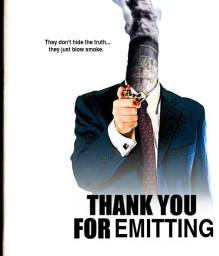Articles in Nature (or Science) are embargoed for the media until the day of publication. A week before publication, Nature sends out a press advisory describing the week’s upcoming papers that is separate from any press releases that the authors or their institutions might put out. Journalists read these, and if interested, spend the time before the actual publication talking to sources and doing background so that they have (hopefully) well-thought out stories ready to go when the embargo lifts. The resulting media splash for the most interesting papers is usually good for the magazine and the authors. But not always.
Last week, the press advisory for one paper gave a slightly misleading account of one apsect of the work described in the article. Normally this would probably not get much attention, but the paper in question dealt with the highly emotional and politicized topic of stem cell research. I don’t want to get into the specifics of this paper (comments on that should be directed elsewhere) but the New York Times reported on the clarification that Nature subsequently put out and noted that the principal author Robert Lanza, had neither seen nor approved the text of the press advisory.
This might seem strange, but this is actually the normal state of affairs. Nature‘s editors write the advisories, which only go out to journalists and are not in general ever seen by the public. Often though, these short blurbs set the tone for the subsequent media attention but, if there is a problem, it can lead to a very widespread mis-communication. Colleagues of mine have been in the odd position of having to ask the journalists to read out the release concerning their own work!
We have previously discussed the problems of getting the press release just right when dealing with articles on potentially controversial science topics, and we strongly urged scientists to be more aware of how press releases are crafted and the message they send. This is obviously very difficult to do if the scientists are not involved in the process.
Coincidentally, I recently had a casual conversation with one of the Nature editors concerning this exact issue (prior to last week’s kerfuffle) and learned that the magazine was thinking about making the advisories public at the time of publication. This would definitely be a step forward for openness. I would go further and also suggest that the principal authors be given a chance to comment on the advisories before they go out. Getting things wrong – even subtly – in contentious fields doesn’t help anyone and the slight extra effort to try and prevent mis-communication is well worth it.
In a similar vein, I have found that journalists who take the time to check back with scientists on their quotes or explanations of the science often catch ambiguities or errors at an early stage and this should be encouraged as much as possible.
At a time when science and science reporting is under pressure from many quarters, journals, press officers, editors and authors need to work more closely together on ensuring that science is reported accurately and effectively.




 Along with various Seattle business and community leaders, city planners and politicians, a large group of scientists from the University of Washington got a chance to preview the new film, An Inconvenient Truth, last week. The film is about Al Gore’s efforts to educate the public about global warming, with the goal of creating the political will necessary for the United States to take the lead in efforts to lower global carbon emissions. It is an inspiring film, and is decidedly non-partisan in its outlook (though there are a few subtle references to the Bush administration’s lack of leadership on this and other environmental issues).
Along with various Seattle business and community leaders, city planners and politicians, a large group of scientists from the University of Washington got a chance to preview the new film, An Inconvenient Truth, last week. The film is about Al Gore’s efforts to educate the public about global warming, with the goal of creating the political will necessary for the United States to take the lead in efforts to lower global carbon emissions. It is an inspiring film, and is decidedly non-partisan in its outlook (though there are a few subtle references to the Bush administration’s lack of leadership on this and other environmental issues).